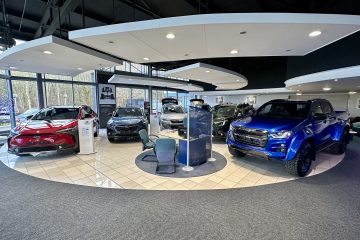As the government announces plans to send in the army over the fuel ‘crisis’ in the UK, interest in electric vehicles (EVs) is surging.
The issues arose over a shortage of HGV drivers, with BP and Esso stating that a handful of sites had to close due to a lack of fuel deliveries. Media reporting on this caused panic, with drivers concerned about a fuel shortage heading to forecourts across the country, causing the very problem they were concerned about in the first place. Pumps have run dry, meaning extra deliveries are required, but with a lack of tanker drivers, this is now a bigger issue than it was initially.
Bring in the army
British Army tanker drivers will be brought to a state of readiness in order to be deployed if required to deliver fuel to where it is needed most and providing further reassurance that fuel supplies remain strong. The military drivers will now receive specialised training before deploying, enabling them to seamlessly work with industry to address the supply chain pressures.
The Military Aid to the Civil Authorities (MACA) request was issued by Business Secretary Kwasi Kwarteng on Monday.
“While the fuel industry expects demand will return to its normal levels in the coming days, it’s right that we take this sensible, precautionary step,” Kwarteng stated.
“The UK continues to have strong supplies of fuel, however we are aware of supply chain issues at fuel station forecourts and are taking steps to ease these as a matter of priority. If required, the deployment of military personnel will provide the supply chain with additional capacity as a temporary measure to help ease pressures caused by spikes in localised demand for fuel.”
Transport Secretary Grant Shapps has authorised an extension to ADR driver licences, which allow drivers to transport goods, such as fuel.
“We are starting to see panic buying moderate – with more grades of fuel now available at more petrol stations,” Shapps added. “People have been responding to the message to only fill up when they actually need fuel and in any case their cars are now fuller.
“Even though the current network of tanker drivers is capable of delivering all the fuel we need – we have taken the additional step of asking the army to help plug the gap, whilst new HGV drivers come on stream thanks to all the other measures we’ve already taken.”
EVs in demand
The fuel issues have come at a time when the automotive industry is pushing for a switch to electrification, prior to the banning of new petrol and diesel models from 2030.
Interest in electric vehicles has surged at online car marketplace heycar – with EV leads more than doubling over the past week.
“This trend is clearly illustrated in the numbers of leads we are sending to our dealer partners. In the last seven days (20 – 27 September 2021), demand for electric cars was up 159% year on year, suggesting people are seriously starting to consider the most sustainable and safe way to get back out there” said Karen Hilton, chief commercial officer at heycar.
Adding to the interest is the lack of enthusiasm over public transport following the COVID-19 pandemic, with office workers relying on their own vehicles to commute. For those millions who are clearly still feeling anxious over the long-lasting effects of the pandemic, despite the lifting of all restrictions, it is the reassuring private space of their cars that appeals most.
Car leasing comparison website LeaseLoco, has analysed almost 1.5 million deal searches made by consumers on its platform during September.
The data reveals that demand for EVs over the past week has rocketed, with searches for electric car deals making up a third of all searches over the past seven days. That is 13% more searches than petrol car deals, the next highest search volume. It is also a 5% increase in EV searches compared to the previous week, when EVs made up 28% of all deal searches.



